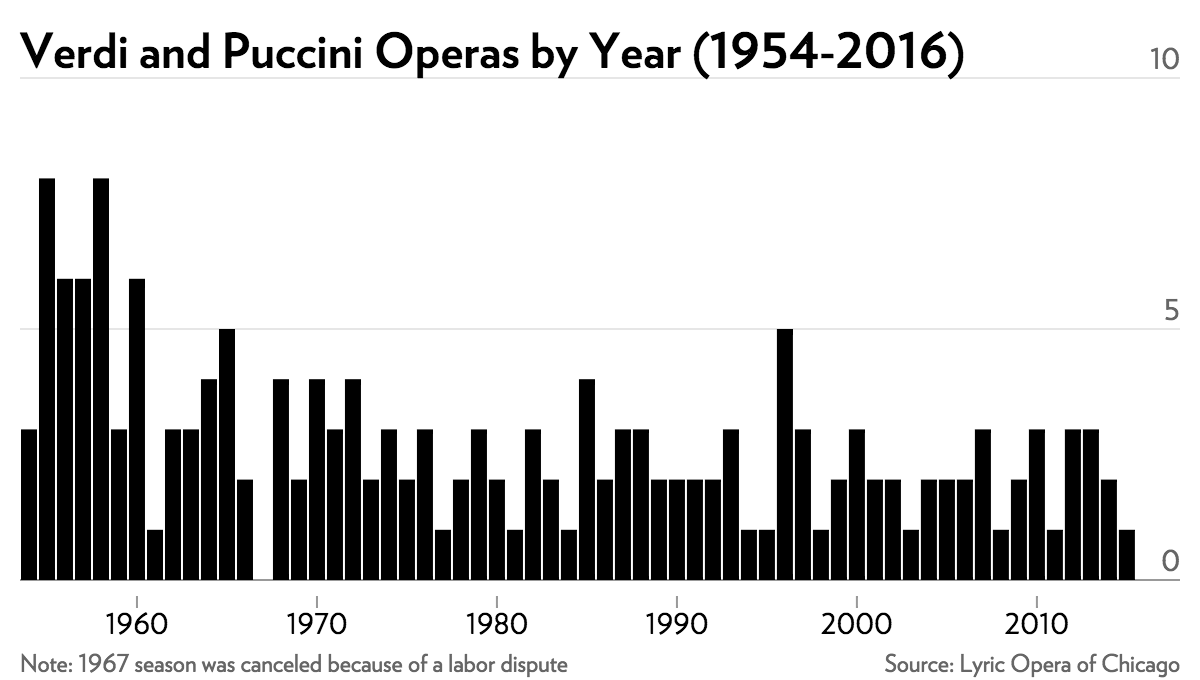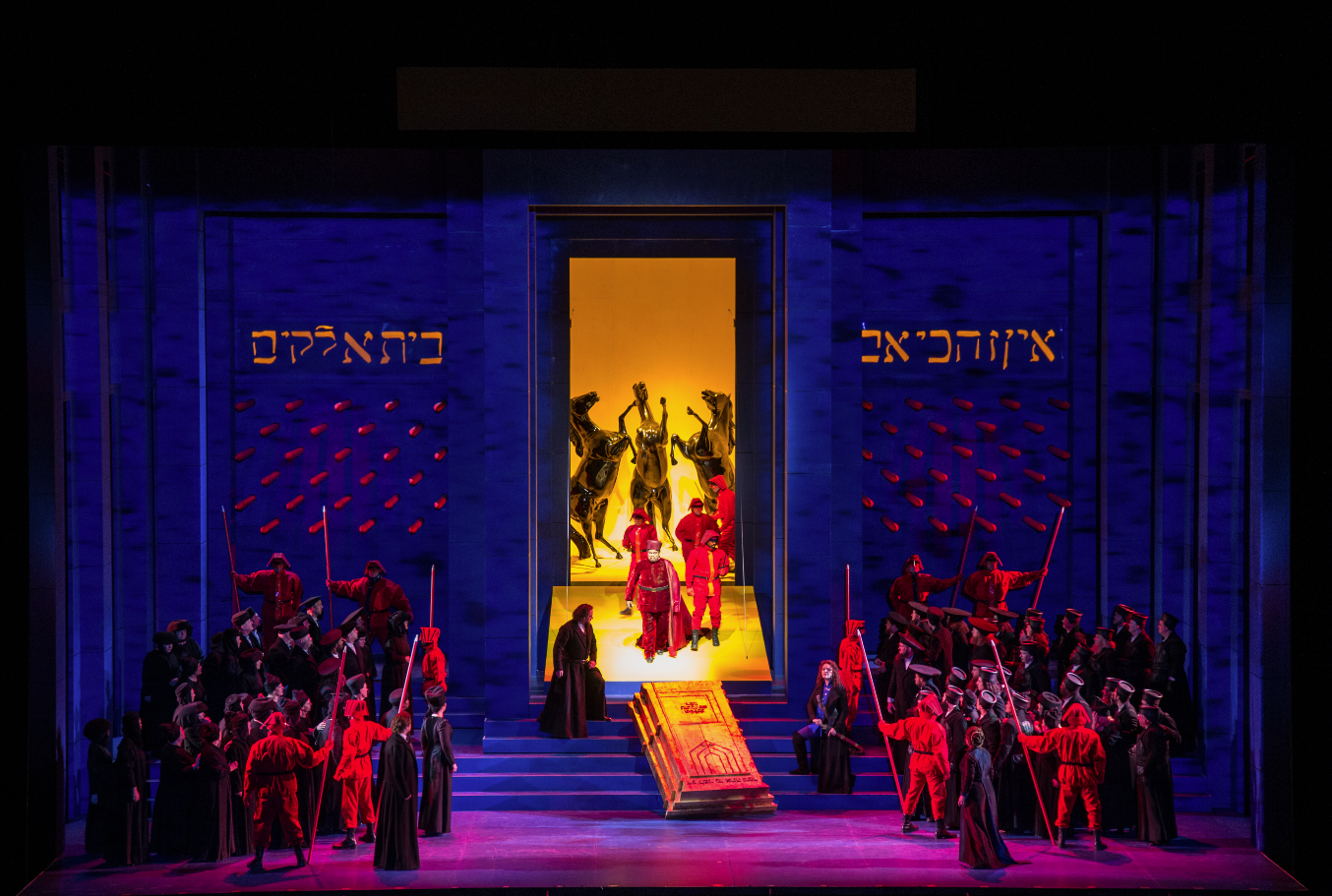There was a time, now spoken of only with a haze of a distant memory hovering over it, when the Lyric Opera of Chicago carried the nickname “La Scala West.” Like the opera nexus in Milan, Lyric’s core repertoire in its nascent days consisted of the great Italian masterworks, especially those of Giuseppe Verdi and Giacomo Puccini. In 1955, its second season, and again in 1958, Lyric staged eight operas by Verdi and Puccini, the same number of mainstage operas that now constitute the entire season. In the first 15 seasons of the company, Puccini’s La Bohème alone appeared eight times.
In the 2016–17 season, announced by Lyric on Jan. 14, zero operas by either Verdi or Puccini appear on the schedule—for the first time in the company’s history. The current production of Verdi’s Nabucco, running through Feb. 12, is it until at least the fall of 2017. (In the press event announcing the upcoming season, Lyric’s music director, Sir Andrew Davis, said explicitly that Verdi and Puccini would feature in 2017–18.)

It’s a coincidence, says Anthony Freud, Lyric’s general director. “At no point did we [Freud and Davis] sit down and think, Could we plan a season without Verdi and Puccini?” he says. “No one should read that into next season’s programming.”
Even though the season contrasts sharply with the Lyric of many decades ago, it differs from recent seasons much more subtly. “It’s misleading to imply the lack of Verdi and Puccini is a sign of a new Lyric,” Freud says. “Those two composers are very well represented by future seasons. Unless the world changes dramatically, they will continue to [even beyond that].”
Many of the buttons pushed by Verdi and Puccini are pushed in Lyric’s 2016–17 season by other operas. For megahits, instead of Verdi’s La Traviata or Puccini’s La Bohème, Tosca, or Madama Butterfly, next season features Carmen and The Magic Flute. Italy stays on the map with two bel canto operas, Lucia di Lammermoor and Norma. The flame of the Romantic era keeps burning with Eugene Onegin and Carmen again.
The coming season’s absence of Verdi and Puccini, the composers of five of the eight most frequently staged operas according to Operabase, is a side effect of a larger opera-world phenomenon: the dissolving box-office predictability of programming.
For many years, Freud says, the artistic and financial goals of an opera house played a familiar duet. “If you scheduled Wozzeck,” Freud says, referring to this season’s critically lauded atonal opera by Alban Berg, “you made a point of scheduling [something like] Bohème in close proximity. The dependable Bohème would in some way cushion financially the experimental Wozzeck.” No longer. “The world has moved on. We can no longer assume that the rarities will sell poorly or the warhorses will sell well.” He points to the runaway success of the world premiere Bel Canto this season.
I’m reminded of the philosophical trope of the ship of Theseus, where one board at a time is replaced in the ship, slowly and gradually, until at some point you realize it’s a whole new ship. The armature of Lyric isn’t a few Italian blockbusters anymore. Those operas still cycle back, now more like every five years, but the main supports now are geographical and chronological balance, not Verdi and Puccini. As the graph above shows, a downward trend suggested a zero-Verdi-Puccini season was coming sooner or later; this just happens to be the year.
Freud doesn’t buy this piece-of-ship analogy, by the way. “Inherent in a company with the history of Lyric is that every new idea is built upon our inheritance,” he says. “We honor that inheritance by taking it in new directions.”




